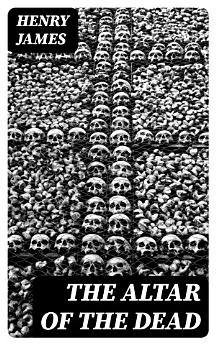The Altar of the Dead
Henry James
Sep 2022 · DigiCat
Ebook
35
Pages
family_home
Eligible
info
reportRatings and reviews aren’t verified Learn More
About this ebook
In "The Altar of the Dead," Henry James intricately weaves a poignant narrative exploring themes of love, loss, and remembrance within the context of a Protestant church in New York City. The novella's literary style is characterized by James's signature psychological depth and subtle characterizations, presenting the internal struggles of the protagonist as he grapples with mourning and faith. Set against the backdrop of the late 19th century, it reflects the period's preoccupation with existential questions, melding realism with a meditative tone that invites readers to reflect on the rituals of memory and the sacredness of loss. Henry James, an eminent figure in American literature and a key precursor to modernist thought, often drew upon his extensive travels and deep engagement with European culture, particularly the complexities of individual psyche. This exploration of spiritual themes can be seen as a response to his own grappling with identity, culture, and the transformative power of love and grief throughout his literary career, which is further marked by a dual American-British perspective. I highly recommend "The Altar of the Dead" to readers interested in nuanced character studies and the interplay of personal and universal grief. This novella not only exemplifies James's mastery of language and psychological insight but also resonates deeply with contemporary questions about the meaning of remembrance and the rituals we create in the wake of loss.
About the author
Henry James (1843–1916) was an eminent American-born British writer, renowned for his novels, short stories, and literary criticism. His work is characterized by keen psychological insight, a sophisticated narrative style, and a profound exploration of the consciousness of his characters. James' narrative prowess blossomed in the rich soil of realism and literary impressionism, often focusing on the clash between the Old World and the New, and the complexities of personal freedom and societal conventions. Among his extensive repertoire of literary contributions, 'The Altar of the Dead' stands as a testament to his exploration of themes such as memory, personal obsession, and the quest for spiritual redemption. This novella was first published in the collection 'Terminations' in 1895 and, like many of James' works, delves into the intricacies of the human psyche and the consequences of the past on the present. His other notable works include 'The Portrait of a Lady', 'The Wings of the Dove', and 'The Golden Bowl', each cementing his legacy as a pivotal figure in the transition from 19th-century literary traditions to 20th-century modernism. By the time of his death, James had achieved both critical and popular acclaim, and he left behind a body of work that continues to influence writers and fascinate readers to this day.
Rate this ebook
Tell us what you think.
Reading information
Smartphones and tablets
Install the Google Play Books app for Android and iPad/iPhone. It syncs automatically with your account and allows you to read online or offline wherever you are.
Laptops and computers
You can listen to audiobooks purchased on Google Play using your computer's web browser.
eReaders and other devices
To read on e-ink devices like Kobo eReaders, you'll need to download a file and transfer it to your device. Follow the detailed Help Center instructions to transfer the files to supported eReaders.








